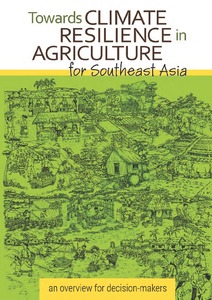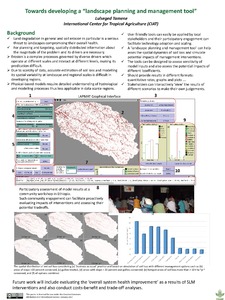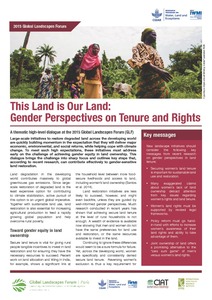The role of biochar in ameliorating disturbed soils and sequestering soil carbon in tropical agricultural production systems
Agricultural soils in the tropics have undergone significant declines in their native carbon stock through the long-term use of extractive farming practices. However, these soils have significant capacity to sequester CO2 through the implementation of improved land management practices. This paper reviews the published and grey literature related to the influence of improved land management practices on soil carbon stock in the tropics.
Trading forest carbon to promote the adoption of reduced impact logging
The Clean Development Mechanism (CDM) of the Kyoto Protocol raised the hopes of many, that payment for carbon sequestration services would provide a significant incentive for sustainable management practices in industrial forestry in tropical countries. Data to assess how realistic these hopes are, remain scant and high degree of uncertainty about CDM rules make assessment hazardous. The analysis in this paper focuses on the potential for using carbon trading to stimulate adoption of reduced impact logging (RIL)-based sustainable forest management.
Towards an integrated global framework to assess the impacts of land use and management change on soil carbon: Current capability and future vision
Intergovernmental Panel on Climate Change (IPCC) Tier 1 methodologies commonly underpin project-scale carbon accounting for changes in land use and management and are used in frameworks for Life Cycle Assessment and carbon footprinting of food and energy crops. These methodologies were intended for use at large spatial scales. This can introduce error in predictions at finer spatial scales. There is an urgent need for development and implementation of higher tier methodologies that can be applied at fine spatial scales (e.g.
Towards climate resilience in agriculture for Southeast Asia: an overview for decision-makers.
This sourcebook, and accompanying poster learning series, is aimed at policy makers, planners in government, local research administrators, civil society partners and researchers in Southeast Asia. Compiled and repackaged by Dr. Julian Gonsalves and a resource team, the Climate-Smart Agriculture (CSA) source book draws from a rich pool of literature from over 700 sources. The compilation provides succinct, relevant and timely information about climate challenges, and potential solutions from previously published work in a simplified or a shortened form from around the world.
The use of wood waste for community-level income-generation initiatives
Towards developing a “landscape planning and management tool”
The value of tropical forest to local communities: complications, caveats, and cautions
The methods used to value tropical forests have the potential to influence how policy makers and others perceive forest landsforestlands. A small number of valuation studies achieve real impact. These are generally succinct accounts supporting a specific perception. However, such reports risk being used to justify inappropriate actions. The end users of such results are rarely those who produced them and misunderstanding of key details is a concern. One defence is to ensure that the ultimate users appreciate shortcomings and common pitfalls.
Third quarter progress report. Kirindi Oya Irrigation and Settlement Project: Project impact evaluation study
Towards sustainable management and development of tropical secondary forests in Asia: the Samarinda proposal for action
Secondary forests comprise a large and growing proportion of the forest cover in the tropics and are very important at the local, national and regional levels for a wide range of products and environmental services. However, knowledge and expertise regarding secondary forests is still limited, and they are inadequately addressed in forest policy, planning and research.




